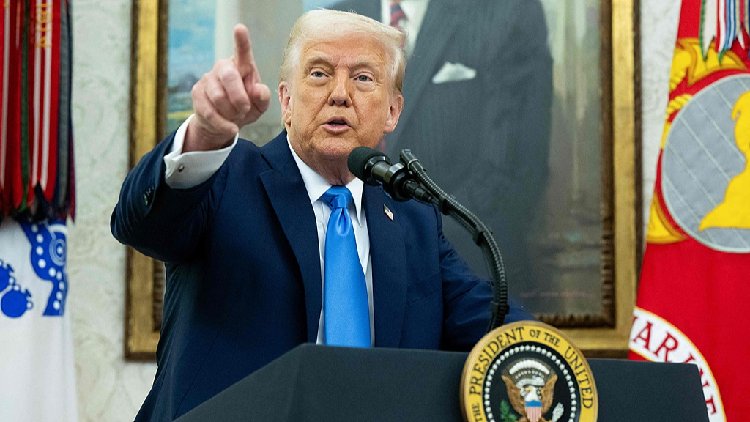Trump considers additional Russia tariffs amid escalating calls to resolve conflict
U.S. President Donald Trump expressed his frustration with Russian President Vladimir Putin on Sunday, stating he was "pissed off" and warned that he would implement secondary tariffs ranging from 25 percent to 50 percent on purchasers of Russian oil if he believed Moscow was hindering his attempts to resolve the conflict in Ukraine.

In a telephone interview with NBC News, Trump conveyed his frustration following recent comments made by Putin that questioned the credibility of Ukrainian President Volodymyr Zelenskyy’s leadership. His remarks highlighted his growing impatience with the stalled progress towards a ceasefire since he took office in January, during which he has been actively seeking to mediate the conflict.
Trump indicated that he could implement the proposed trade measures within a month and intended to have a conversation with Putin that week. As of now, there has been no immediate response from Moscow.
On a related note, Putin had mentioned on Friday that Ukraine could potentially be placed under a temporary administration to facilitate new elections aimed at removing Zelenskyy from power.
During a series of discussions with Finnish President Alexander Stubb over the weekend, Trump was advised to establish a deadline for reaching a ceasefire between Russia and Ukraine, with Stubb suggesting April 20 as a target date since it would mark three months since Trump assumed office.
U.S. officials have also been encouraging Kyiv to consider a critical minerals agreement, which reportedly stipulates that Washington would gain control over Ukraine’s natural resource income for several years. Zelenskyy stated that his legal team needed more time to review the draft before he could provide any further comments on the U.S. proposal.
Following discussions regarding the minerals deal, Putin responded by proposing a future economic agreement to collaborate on exploring Russia's rare earth metal deposits. According to the Izvestia media outlet, talks have commenced between Moscow and Washington about joint projects involving rare earth metals, and these discussions may continue in the upcoming Russia-U.S. talks planned for mid-April in Saudi Arabia.
Since taking office, Trump has consistently threatened and enacted tariffs on imports from countries that maintain trade surpluses, imposing heavy tariffs on steel, aluminum, and automobiles, which have impacted key U.S. allies including Canada and the EU.
Experts, such as William Reinsch from the Center for Strategic and International Studies, have suggested that Trump's latest tariff threats could lead to further disruptions in the U.S. market. He pointed out that the manner in which Trump has announced these tariffs raises many questions, especially concerning how U.S. officials would determine which countries are purchasing Russian oil.
Last week, Trump laid the groundwork for his recent announcement by introducing a 25 percent secondary tariff on U.S. imports from any nation buying oil or gas from Venezuela.
Additionally, Trump threatened on Sunday to impose secondary sanctions on buyers of Iranian oil if the country did not agree to end its nuclear weapons program. Earlier this month, he had reached out to Iran's Supreme Leader Ayatollah Ali Khamenei, stressing the need for Iran to engage in new negotiations or face military action.
Iranian President Masoud Pezeshkian remarked that Iran has declined the prospect of direct negotiations but remains open to indirect dialogues. He emphasized that while Iran is not fundamentally opposed to negotiations, Washington must first address past "misconduct" and work to rebuild trust.
Jessica Kline for TROIB News
Find more stories on Business, Economy and Finance in TROIB business












